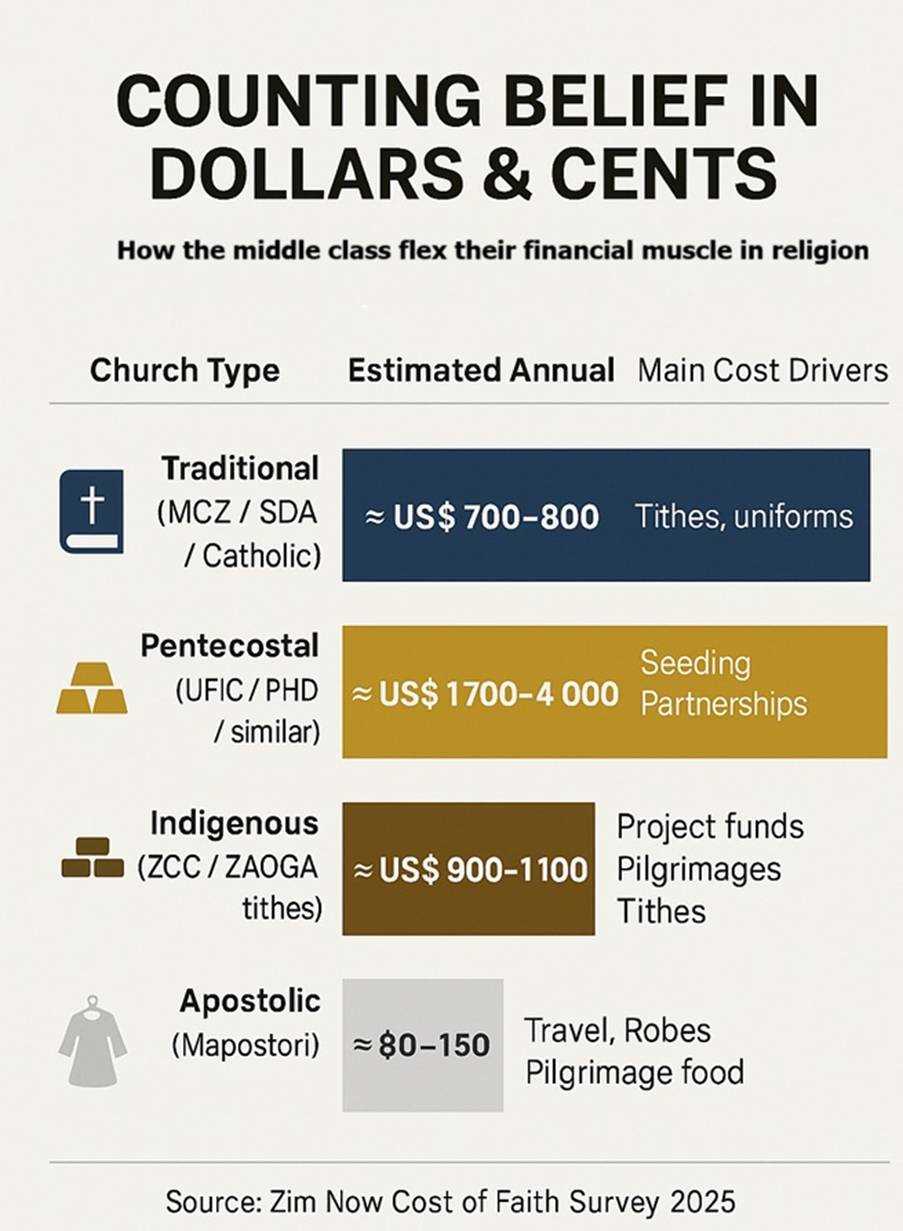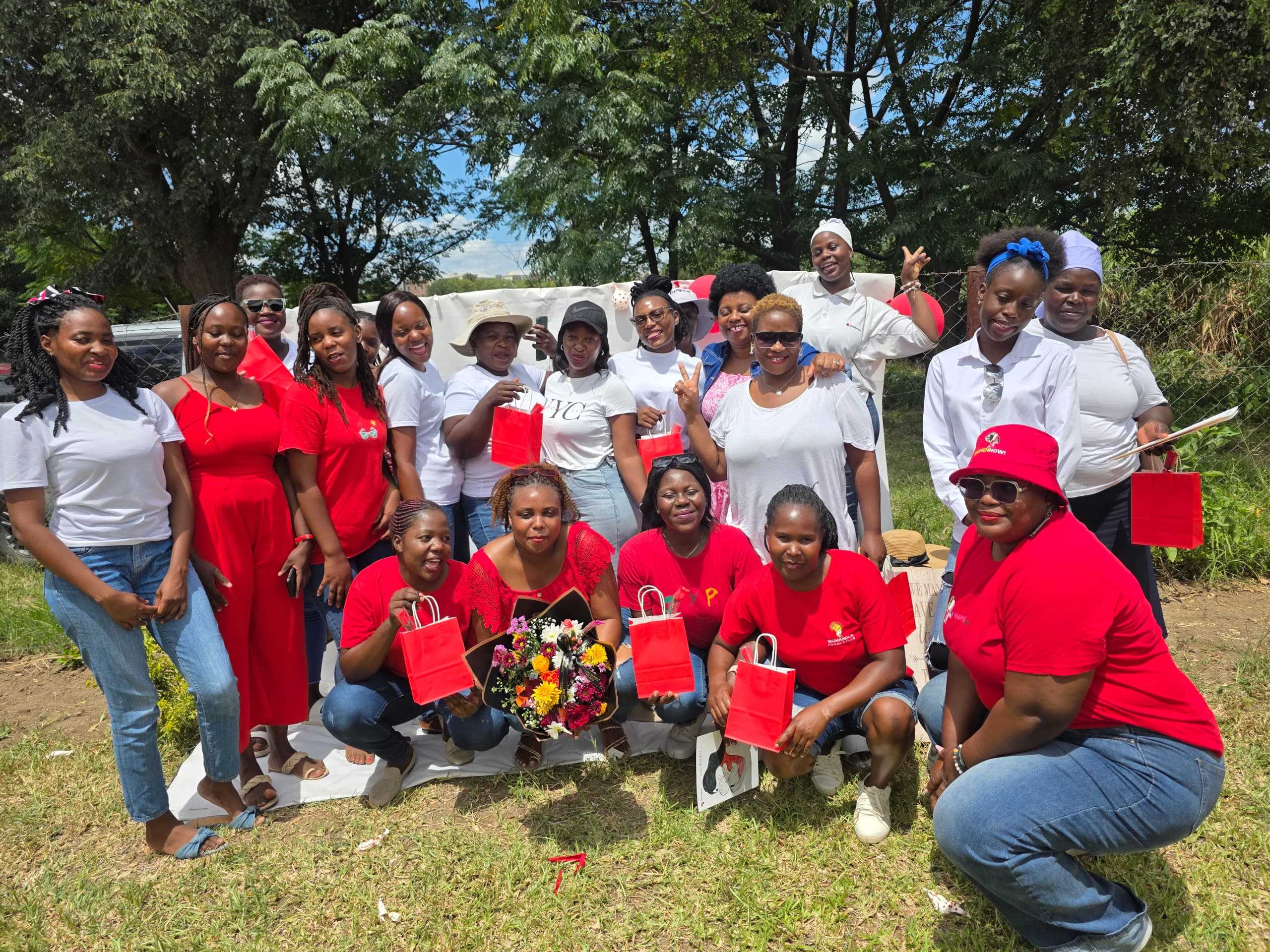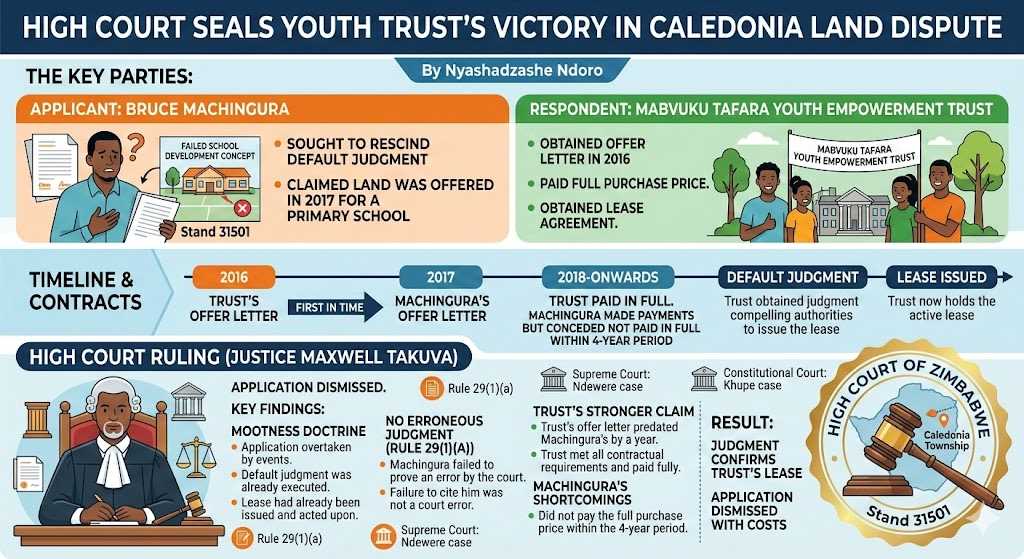The Price of Christian Faith in Zimbabwe

On a warm Sunday morning in Harare’s CBD, Mrs Rufaro Gundani smooths the creases on her floral dress and slips a few folded notes into the offering basket as the choir belts out “Jehovah Jireh, My Provider.”
It’s the third envelope she’s filled this month — after “Partnership Sunday” and a “Building Pledge.” Two weeks from now, she’ll be asked to sow into the prophet’s birthday seed.
As the basket moves down the row, she whispers a fervent prayer for financial breakthrough to climb out of mounting debt. Anyone suggesting that the cost of worship adds to her woes would be branded the devil incarnate.
Across Zimbabwe’s churches — from Pentecostal cathedrals to Apostolic shrines — the baskets never stop moving. In pews and prayer circles alike, faith is a heavy financial burden on the faithful.
This feature focuses on Harare’s middle-class worshippers, for whom religion is both a refuge and a recurring expense.
Tithes, Travel and the Gospel of Spending
In traditional congregations giving is structured and codified. The tithe — ten percent — is sacred, backed by Malachi 3:10.
For women like Mrs Tsitsi Mupamhanga, a mid-level manager earning about US$1 100 a month and member of a Western-style church, the ledger of devotion fills quickly. Offerings every Sunday are joined by building funds, guild dues, leader appreciations, transport, logo-branded apparel, accessories, and travel for the annual Ruwadzano gathering. Together, these easily exceed US$700 a year.
“You register your church membership and participation with money,” she laughs — though her eyes betray fatigue.
The Prosperity Price Tag
Tanyaradzwa Mbizo, a boutique owner, smiles as she speaks of how her “holy investments” keep her afloat.
“This is my investment,” she says, pointing to a bottle of branded oil which, she believes, protects her business even on slow days.
Every cent she earns is faithfully recorded. She may not be upright with the Zimbabwe Revenue Authority, which she views as “a worldly nuisance,” but she is meticulous about tithing to her prophet.
In addition, she pays for seeding, buys partnerships, and spares no effort to stand out with lavish gifts to the prophet and his wife. When business slumps, she doubles down with one-on-one consultations — each costing more than US$200 a session.
Tanyaradzwa admits that on Sundays the pressure to look blessed runs deep. Pew-side fashion contests — heels, wigs, handbags — turn sanctuaries into silent catwalks, creating a second, unspoken tithe.
Between tithes, partnerships and appearance, the church drains more than US$4 000 a year from her revenue. Yet at the annual Crossover ceremony to ring in the New Year, she plans to pray to double that in 2026 — so she can rise to the coveted Platinum Partner status.
Related Stories

The Builders of Faith
For Mai Ratidzo Chihambakwe, whose devotion is anchored in one of Zimbabwe’s older indigenous churches, giving means legacy.
She pays the usual tithes, attends gatherings, and gives offerings — but also commits US$1 000 annually toward church projects, even at the cost of a humbler lifestyle from her ad-hoc consulting income. Schools, universities, churches, hospitals — they buy her pride in something tangible.
“God’s work is there for all to see,” she says.
For such believers, the projects stand as monuments to faith — sacrifices they will die making. Ask about the paperwork defining who owns these assets and the obvious wealth of her church royalty, and Mai Chihambakwe’s eyes harden. Touch not her anointed!
The Mapostori Minimalists
Madzimai Emeredha dusts off her jewel-green robe and slips barefoot into her late-model Honda CR-V, leaving a church with no pews, instruments, or offering envelopes.
“We just bring our bodies,” she says cheerfully.
A “gamenzi” ensemble costs less than US$15 and lasts years — unless the prophet receives a revelation about a new colour better suited to blessings. Her main expense is driving to the kirawu, traveling on pilgrimages, food, and the occasional sanctification items: eggs, honey, cordial — sometimes just stones or water.
Yet even minimalist spirituality has its costs.
“When a prophet gives personal spiritual succour,” Madzimai Emeredha explains, “you must thank them according to your means. The true ones don’t charge; you just give.”
Large gifts — cash, vehicles, livestock — often follow miraculous breakthroughs.
Some apostolic sects, she adds, are evolving towards structured contributions and asset acquisition and building schools, thus their fee structure is now mirroring other churches.
In a country where most workers earn under US$350 a month, for the lower classes, their annual $200 or less contributions represent serious sacrifice, but it’s one that they are willing to make.
As Tanyaradzwa Mbizo folds a wad of notes into the Sunday basket, she sums it up for all of them in their different denominations:
“God sees I’m trying my best — and He is faithful,” she says.
Because belief is priceless —it just happens to cost a lot.



















Leave Comments